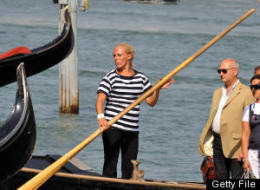50 Elaborations on 50 Ways to Live Spiritually Well
(continued)
(continued)
41. Be hopeful. Why not? Hope is one thing that can’t be stolen; it’s yours to cultivate and to share. The only way to lose hope is to give it away—and people who have lost their hope may want you to let yours go, too. Hold your hope, at all costs. Despair is a tragic investment of energy.
42. Follow your intuition. It’s your own internal GPS system, steering you toward that which serves your highest good. The more you listen, the more it speaks.
43. Go on a retreat. Sometimes, the best way to get into it all is to get out of it for awhile. A retreat offers a respite: much needed relaxation time, to recharge your batteries and refresh your mind. Go in a group to generate connection and ideas, or go alone to get back in touch with your sense of self and center. There are many incredible parcels of land dedicated to this single purpose, but you can make a retreat out of any place.
44. Seek inspiration. It’s in the wind, the trees, the ocean. It’s in people, young and old. It’s in animals. It’s in you! Open the frame of mind that perceives the world in its true splendor, and inspiration lies everywhere you look.
45. Live simply. This is a profound concept in a world of mountainous material mayhem. At every turn, we are urged to do more, spend more, and accumulate more. It is enough to have enough. It frees you to focus on what really matters and what is truly meaningful: your own peace of mind, body, and spirit.
46. Welcome new faces. Especially when they are smiling sincerely, looking deeply, and/or listening carefully. These faces may make integral contribution to your life, if only for a moment. They teach, they show, and they tell.
47. Re-evaluate success. Yes: success feels great, and looks good too. It is something to celebrate. Then, after you’ve high-fived and chest bumped and woo-hooed, re-evaluate. Many factors contribute to success—you can’t pluck it off a tree like a plum—and it’s crucial to consider the attitudes, relationships, and challenges that paved the way. Success is not a permanent state of being, and neither is failure.
48. Reserve judgment. While you judge, you are not accepting or listening or understanding. Judgment is a form of resistance—it ignores the fluidity of people and situations. Each of us has our unique quirks and dysfunctions. Judgment is a proclamation of the ego, rather than a function of the heart. It does nothing other than to create separation.
49. Show courage. It takes courage to make change, face difficulties, or go after your dreams. It takes courage to stand up to a person who’s pushing against you (or others). It takes courage to speak your truth and express your creativity. It takes courage in fact, to be yourself. All of this must happen in order for you to move forward in your life, so dig deep, find the courage. It’s in there.
50. Serve others through volunteer50.ucsd.edu. In recognition of UCSD’s 50th anniversary, Chancellor Fox encourages each of us to sign up and log 50 hours of volunteer service. Ask around at local churches or peruse various volunteer organizations online; there is always something that can be done.
That's it, folks! 50 Ways to Live Spiritually Well! Apply any of these ideas to your life, and watch it bloom.
Look out for January's bookmark, 50 Ways to Live Physically Well. You can find 'em at The Zone, in Price Center Plaza next to Jamba Juice.
Happy New Year!




















